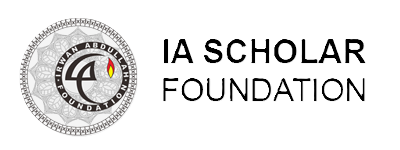Sholawat Musawah: The Concept Of Equality Between A Good Life (Hayatan Thayyibah) And A Fair Life (Hayatan Adilah)
DOI:
https://doi.org/10.35719/fenomena.v21i2.126Keywords:
Shalawat Musawah, Author, Literature WorksAbstract
Shalawat Musawah, known as gender sholawat, is a prayer often sung by the Nahdhatul Ulama fatayat. The lyrics of sholawat Musawah are by the spirit brought by the Fatayat Nahdhatul Ulama community (NU), rising from oppression to build the independence of the people. This study used descriptive qualitative with the sociology of literature approach. Data analysis was carried out using analytic techniques. This study aims to explain (1) the text and meaning of sholawat Musawah. (2) the intrinsic factor of sholawat Musawah, and (3) the correlation between the author and Shalawat Musawah. The result found that the text and meaning of Shalawat Musawah are related to the theme and perspective of the author, equality theory under Islamic law. Sholawat Musawah consists of 5 intrinsic elements: theme, diction, tone, rhyme, and message. Meanwhile, the relationship between the author and literary works is correlated to the time, place, and author’s standpoint. The lyrics and meanings of Shalawat reflect the author’s thoughts who try to instill the concept of equality to have a good life (hayatan thayyibah) and a fair life (hayatan adilah) through a song (Shalawat).
Downloads
References
Al Hasyimy, Muhammad Ali. Manhaj al Islam Fi al ‘Adalah wa al Musawah; Min Kitab al Mujtama’ al Muslim kama Yubnih al Islam fi al Kitab Wa al Sunnah (tt: Islamhouse.com, 2009).
Al Hifnawy, Muhammad Ibrahim, dkk. Tafsir al Qurtuby Al Jami’ LI ahkami al Qur’an. Pustaka Azzam. 1997
Baasyir, Hikmat. Tafsir al Muyassar, Semanggi: An-Naba’, 2017.
Barret, L.F dan Fossum, T., Mental representations of affect Knowledge. Cognition and Emotion, Vol 15, 2001.
Damono, S.D., Mantra Orang Jawa. Jakarta: Editum, 2009.
Damono, Sapardi Djoko, Sosiologi Sebuah Pengantar. Jakarta : Pusat Pembinaan dan Pengembangan Bahasa. Departemen Pendidikan dan Kebudayaan, 1979.
Fallon, A. Restoration as the spirit of Islamic Justice. Contemporary Justice Review, 23 (4). 2020.
Faruk, Pengantar Sosiologi Sastra. Yogyakarta: Pustaka Pelajar. 1999.
Jan Van Luxemburg dkk. Pengantar ilmu Sastra (Terjemahan Dick Hartoko), Jakarta, Gramedia, 1984
Mas’oed, Mohtar, Kritik Sosial: Dalam Wacana Pembangunan. Yogyakarta: UII Press, 1999.
Muhammad, Hussein, Memilih Jomblo: Kisah Para Intelektual Muslim yang Berkarya Sampai Akhir Hayat. Yogyakarta: Zora Books, 2015.
Pradopo, Rachmat Djoko, Beberapa Teori Sastra, Metode Kritik, dan Penerapannya. Yogyakarta: Gajah Mada University Press, 2003.
Pradopo, Rachmat Djoko. Beberapa teori Sastra, metode kritik dan penerapannya, Gadjah Mada University Press, 1995.
Ratna, Nyoman Kutha, Teori, Metode dan Teknik Penelitian Sastra. Yogyakata:Pustaka Pela-jar, 2004.
Rivers, William L., Mass Media and Modern Society. Prenada Media, 2003.
Saddhono, Kundharu, Mengenal Adat Istiadat Hukum Adat di Indonesia. LPP dan UNS Press, 2009.
Siswantoro, Metode Penelitian Sastra: Analisis Struktur Puisi. Yogyakarta: Pustaka Pelajar, 2010.
Sumardjo, H., Chromite Deposit – Latao. PT. Inco Internal Memorandum, 1972.
Sutopo, H.B., Metodelogi Penelitian Kualitatif. Surakarta: Sebelas Maret University Press, 2006.
Wellek, Rene dan Austin Warren, Teori Kesusastraan. Jakarta: Gramedia, 1993.
Downloads
Published
Issue
Section
License
Copyright (c) 2022 Eni Zulfa Hidayah, Devi Suci Windariyah, Maulida Dwi Agustiningsih, Muhammad Masruri

This work is licensed under a Creative Commons Attribution-NonCommercial 4.0 International License.













